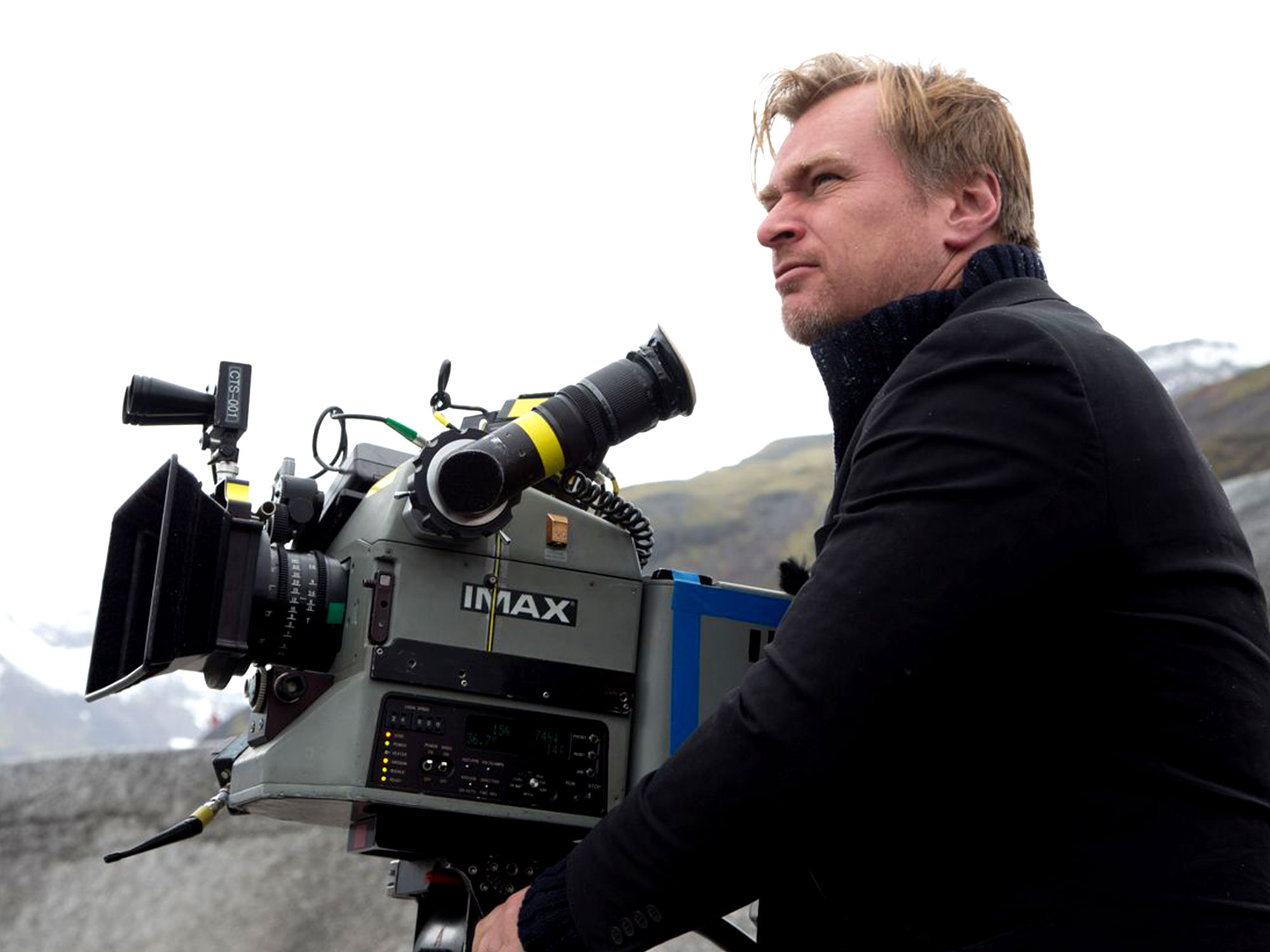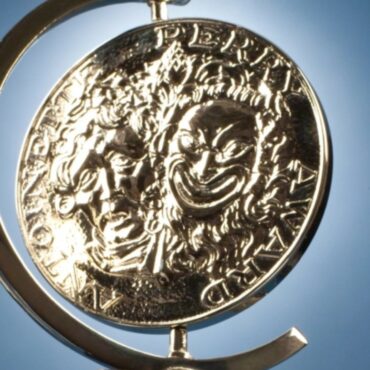chevron_left
-
play_arrow
NGradio So good... like you
Why ‘Dunkirk’ Is the Christopher Nolan Movie We’ve Been Waiting For

share
close
How do you solve a problem like Christopher Nolan? Answer: You give him a war to recreate.
You can tell from the very first seconds of Dunkirk, the filmmaker’s attempt to encapsulate a key WWII battle and the agony/ecstasy of an epic rescue mission that essentially saved the Western World (no big whoop), that this is a gift sprung from the head of the Dark Knight auteur. Composer and longtime collaborator Hans Zimmer starts his orchestral maneuvers in the dark before the film’s title, done in a signature white-letter font we’ll call Times New Nolan, shows up against a black screen. A preamble sets the scene: British troops are trapped in France, they have to get across the channel before the surrounding Nazi forces exterminate them, all is lost, hope is on the way.
Then, boom: We’re in the middle of a smooth-trawling tracking shot, one of those glide-in-progress drop-ins that Nolan is so fond of, trailing behind troops as fliers rain down. The message on these paper missives, in no uncertain terms: Hi guys, you’re fucked. A soldier, played by actor Fionn Whitehead and one of several every-Brits we’ll follow around for the next hour and 46 minutes, stops to drop trou and take a dump. (It’s the first of several times he’ll try and fail to relieve himself; we’re used to seeing a lot of anal-retentiveness in Nolan’s movies, just not the literal kind.) An attack breaks out, and the young man scrambles as unseen assailants take out the rest of his regiment. After the camera follows him down streets and over fences and through backyards and between whizzing bullets, he ends up on the beach. Thousands of troops are there, waiting for salvation in long, straight lines on the shore. What they get, after a brief respite, is an air raid.
It’s a bravura opening sequence. Of course it is: Bravura sequences, opening or otherwise, are one of the things this 46-year-old director has always specialized in. Over the course of his previous nine films, Nolan has wowed audiences with Heat-level bank heists and supervillain stadium demolitions, rotating hotel corridors and cosmic head-trips through black holes – the man knows his way around a show-stopping set piece. And if those spectacular moments happen to be embedded in a narrative that folds in on its three-act structure or ties storylines into knots or runs itself backwards, all the better. Few working filmmakers are attempting to make such ambitious blockbusters. Even less are better at turning cerebral, confusion-inducing movies into multiplex manna.
But there’s always been a whiff of doubt around his work – that for every philosophical chin-stroke or rigorous attempt to give Batman the existential heft of a Bergman protagonist, Nolan’s movies were perfect-looking contraptions with a curious emptiness at their centers. Yes, Inception, Interstellar and the Dark Knight trilogy are smart, austere takes on caper thrillers and hard sci-fi and superhero flicks, ones that valued being impeccable and occasionally impenetrable, blessed with a sort of chops-based chilliness that suggested having been made by a brain in a jar. Yet you began to wonder if the long-running times (there are inevitably amazing 90-minute films sequestered inside his two-and-a-half hour opuses) and the fact his films were even bothering to ask Big Picture questions most big-budget fare couldn’t care less about offered the illusion of importance rather than the thing itself. Maybe Nolan was not quite the Great White Hope we wanted him to be. Maybe he was just an incredible, technically dazzling puzzlemaker – the Kubrick of Rubik’s Cube movies.
Dunkirk changes all of that, even as its sticks to a type of Nolan 101 template. There’s no reason to think this won’t be formalistic achievement of the highest order, complete with exquisite period detail and 70mm celluloid hallelujahs (ignore the “there’s only one right way to see this movie!” online brouhaha, but do see it on the largest possible screen if you can). There are three narrative strands – one on land, one by sea, one up in the air – set within three distinct time frames – one week, one day, one hour. The question is not whether they will sync up but when and how, and damned if it’s not done as deftly as you expect. Here comes Hans Zimmer’s shrieking, seesawing string symphonies, all tension and no release. Christian Bale is AWOL, but there’s Tom Hardy as a Spitfire pilot and Cillian Murphy as a shell-shocked soldier. Welcome to Nolandia.
Except all this prowess, plotline plate-spinning and ability to move heaven and earth feels, for once, like it’s being deployed for a purpose – as if, after a career devoted to mastering the Pledge and the Turn, Nolan has finally found something genuinely worthy of bringing out his Prestige A-game. The goal may have been to merely bring modern audiences up to speed on the Battle of Dunkirk and reiterate that it’s not just a British history footnote. But within that stiff-upper-lip–itude story he’s also found a lesson in perseverance, patriotism (the real kind, not the political-sham version trotted out these days), pain, everyday heroism, extraordinary sacrifice and the effort it takes to keep going when your way of life is in danger of being extinguished. “Well done,” says an old man to Whitehead, near the end of the film. “All we did is survive,” he replies. The response back: “That’s enough.”
And within Dunkirk‘s combination of fill-in-the-blanks storytelling minimalism and big-screen IMAX-imalism, Nolan has found a way to give this tale a grandiosity without virtuoso-grinding the life out of it. There’s a sense of the stakes behind every spectacular dogfight and beachside bombing and abandon-ship catastrophe (all of which are indeed spectacular), and you can feel that there’s a human being on the other side of the camera calling the perfectly composed shots. Even the triptych approach doesn’t feel like a gimmick but a way of getting at the cost of life a little deeper every time it toggles between timeframes. What you remember are the little moments: the shot of Whitehead and cohorts catching their breath in the seafoam; Harry Styles wearily accepting a beer handed to him through a train window; Mark Rylance putting his hand on the shoulder of a shaken soldier on his boat; Hardy waving to a downing colleague and later watching as he bids farewell to his own plane (the only time we see the bad guys … and they’re out of focus.) The Ringer’s Rob Harvilla summed it up nicely: “[Nolan] can still build a beautiful trap. But he’s finally come to see the people scurrying inside as more than mere rats.”
This is the Nolan movie that we doubters have been waiting for, the one that proves that it’s all not just next-level expertise for expertise’s sake. He’s always distinguished himself as a “visionary” filmmaker, an intellectual storyteller, a man with multiple tricks up finely tailored sleeves, someone who’d earned the right to having his own genre and could deliver a $50.5 million opening weekend to the most unlikely of blockbusters. Now he’s finally established himself as an artist. Everyone knew he had a mastery of the medium. Dunkirkproves he knows how to use it say something.
Source: rollingstone.com
Written by: New Generation Radio
Rate it
Similar posts
ΔΗΜΟΦΙΛΗ ΑΡΘΡΑ
COPYRIGHT 2020. NGRADIO




















Post comments (0)